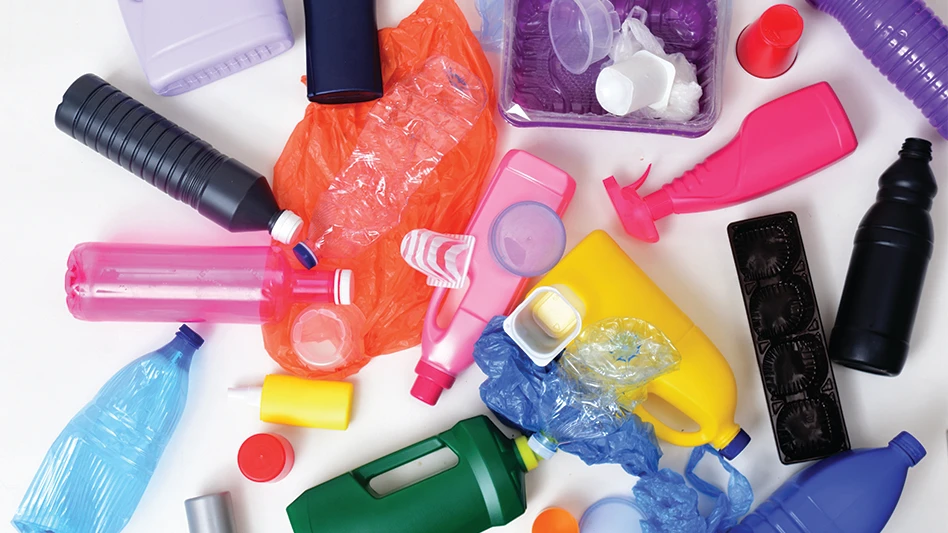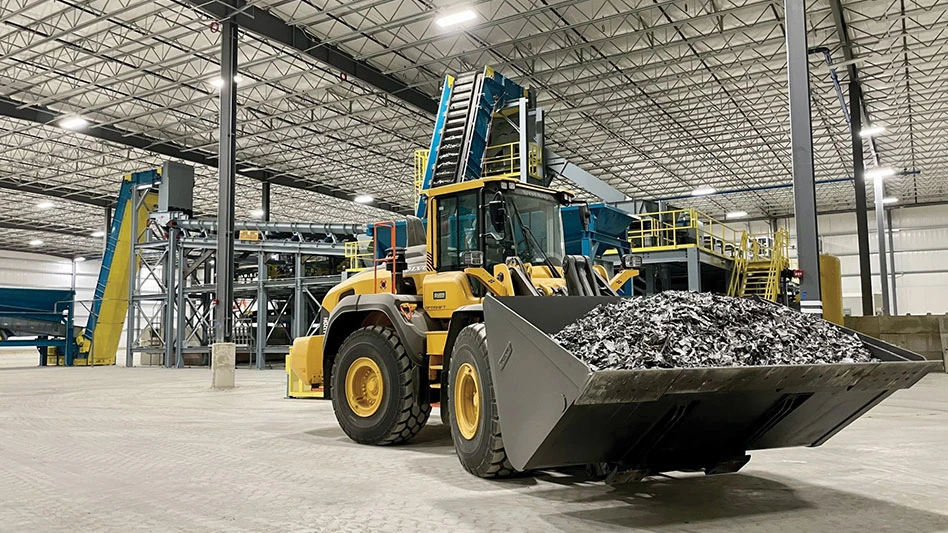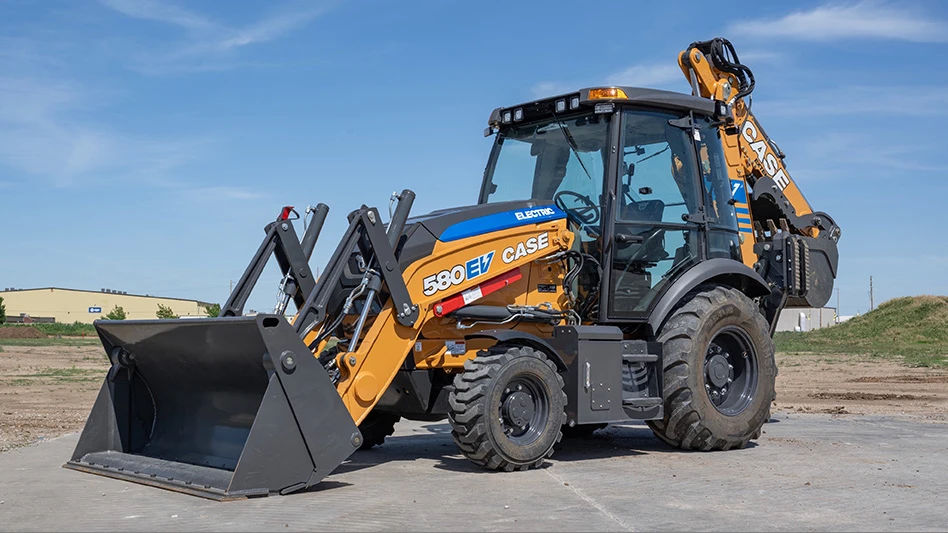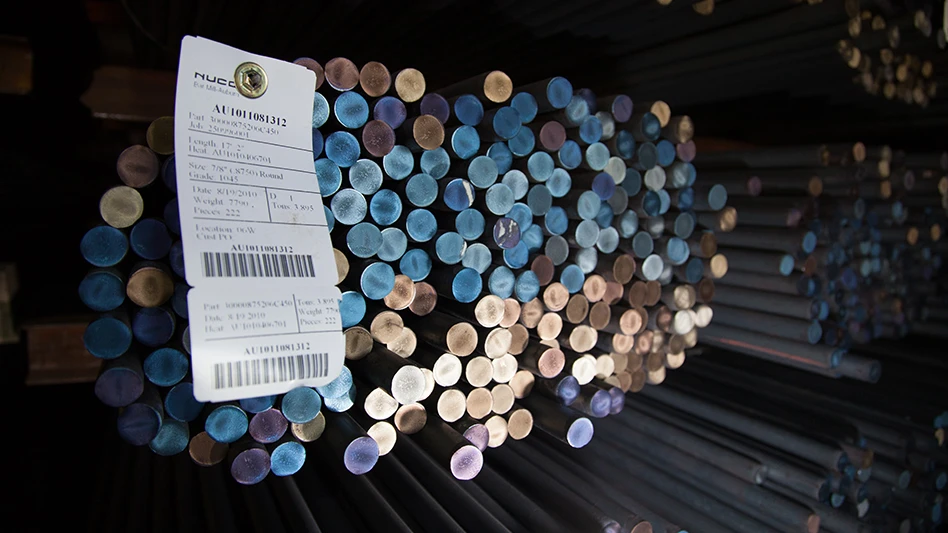PENNSYLVANIA LAUNCHES INITIATIVE
Pennsylvania has announced plans to bolster the state’s 11-year-old recycling program using a four-pronged approach. “Every day, Pennsylvanians are meeting the challenge of recycling materials that they no longer need,” says Mark Schweiker, chairman of the Governor’s Executive Council on Recycling Development and Waste Reduction, in a press release.
“Now we are preparing to launch into the next century with a concentrated approach to marketing products made from those recycled materials,” Schweiker continues. “It’s all about working toward our statewide recycling goal of 35% by 2003.”
The state agency that administers the Commonwealth’s recycling program, the Department of Environmental Protection (DEP), will take what it is calling a market enhancement approach that will include:
· Hosting a Recycling Market Development summit in October
· Opening a Recycling Market Development Center in Harrisburg
· Presenting a new media campaign
The Recycling Market Development Summit will be conducted by the DEP in collaboration with the Pennsylvania Recycling Council (PRC) and the Public Recycling Officials of Pennsylvania (PROP), says DEP deputy secretary for air, recycling and radiation protection Denise Chamberlain.
The Recycling Market Development Center will be founded as a nonprofit organization and will be governed by a board of directors drawn from DEP, PRC, PROP and local government recycling programs and businesses.
PET PROCESSORS WARNED OF MIS-CODED BOTTLES
About 400,000 food-grade PVC pancake syrup bottles distributed in the southeastern and Midwestern U.S. were incorrectly labeled as #1 PET bottles.
The president of the container-making company that produced the bottles believes that the incorrect codes will not pose a problem for most recyclers. “It is our belief there is going to be no problem,” says Mel O’Leary, president of the Meredith-Springfield, Ludlow, Mass. “The recycling symbol on the bottom of the container is the first step, but most recyclables pass through sophisticated equipment to scan and identify it.”
O’Leary says he thinks it is a long shot that the labeling mix-up will cause any serious problems for plastics recyclers.
Torbitt and Castleman, the packagers of the syrup, held 98,000 empty containers and will not distribute them, as well as holding 20,000 filled containers that will also not be distributed. The mix-up occurred when PVC was unintentionally run in a PET mold and it was not discovered until a few weeks after the bottles had already left the facility.
The bottles, labeled as #1 PET but actually PVC #3, were marketed under many different labels and were distributed between April and June. They will probably be entering the recycling stream throughout the summer and into the fall, says Steve Long, Massachusetts Department of Environmental Protection.
Steps taken to make plastics recyclers aware of the issue include direct mailings to the recycling industry, paid for by Torbitt and Castleman, as well as mailings to plastics trade organizations. Efforts are also being made to have the news item posted on websites dealing with the plastics industry and related media sites as well.
Meredith-Springfield is a custom blow molder of plastics packaging. Torbitt and Castleman Co., Buckner, Ky., is a food packager.
MILK PRODUCERS TAKE RESPONSIBILITY
The Alberta dairy industry became the first in Canada to take responsibility for all of its containers when it began a voluntary stewardship program for plastic milk jugs.
In an agreement between the Alberta Dairy Council (ADC) and the province of Alberta, the ADC will set up a Container Recovery Fund to administer the program and a steering committee that will help to provide support to the project.
The program, funded by dairy processors, will pay two cents per four-liter HDPE container and one cent per two-liter HDPE container, based on unit sales. Program participation is voluntary for municipalities and they may opt to have a private or non-profit group provide collection services instead. The program is expected to achieve a 75% recovery rate.
RECYCLING ROOM SERVICE
Recyclables generated by hotel visitors are being targeted for collection in the Syracuse, New York area by the Onondaga County Resource Recovery Agency (OCRRA).
Twenty-five motels in that region have agreed to place in-room recycling containers in their properties to capture a stream of recyclables that often heads to the landfill.
The motel sector in Onondaga County generates nearly 5,000 tons of trash each year, much of which is recyclable. The OCRRA estimates that 35% of that amount consists of recyclable paper while another 17% is recyclable glass, metal or plastic.
While many hotel kitchens recycle their corrugated boxes, glass, metal and plastic containers, the new in-room containers provide a way to capture an additional stream of material.

Explore the October 1999 Issue
Check out more from this issue and find your next story to read.
Latest from Recycling Today
- Indiana county awarded $65K recycling grant
- Mixed paper, OCC prices end year on downward trend
- Updated: CAA submits final draft program plan in Oregon
- Enviri names new president of Harsco Environmental business
- Survey outlines ‘monumental challenge’ of plastic packaging collection in UK
- Nippon Steel acknowledges delay in US Steel acquisition attempt
- BASF collaborates to study mechanical plastic recycling
- Commentary: navigating shipping regulations for end-of-life and damaged batteries





